The American Legislative Exchange Council (ALEC) is a non-profit, tax-exempt organization which seems to masquerade as a force for public good. Effectively, it functions as a front for large corporate interests, composed of corporations, think tanks and members of state government. Its contributions accrue great benefits for the rich.
It is a big reason right-wing ideas are taking over in Republican-controlled states where duly-elected representatives belong to ALEC and do its bidding. These representatives do not legislate, rather they fill in the pertinent blanks for boilerplate laws that ALEC composes in about half of our states. Percentage membership in ALEC correlates with the dominance of the GOP in state government, though some Democrats belong as well: South Dakota, 100%; Iowa, 100%; Arizona, 49%; Oklahoma, 47%; and Texas, 45%, for example.
ALEC was responsible for the “Stand-your-ground” laws so highly favored by the NRA and responsible for many what-used-to-be charged-as-murders in states featuring them, the Trayvon Martin killing in Florida being one of them. ALEC writes legislation to stifle unions, implements lobbying to privatize public functions like education, public roads, and public parking. It writes plans to lower taxes for corporations and raise them for the people. It vociferously opposes health care reform (ACA).
With ALEC’s influence spreading (it dominates legislatures in 24% of the states), it administers “Model Bills” that benefit corporations which are members (list below) who financially support its efforts. Some of the supported legislation and some of the best-known members who benefit are cited:
|
Legislation Supported |
Best Known Member Corporation Interests |
|
Gutting environmental protection laws |
Koch Industries, ExxonMobil, DuPont, Dow Chemical, ConocoPhilips, American Petroleum Inst |
|
Communications Ownership & Freedom laws (Internet, phones, wireless, etc) |
AT&T, Verizon, Time Warner, T-Mobile, Facebook, Google, Fox News |
|
Unregulated Health Industries (Drugs, health care) |
United Health Care, GlaxoSmithKline, Genentech, Pfizer |
|
Absolutely no gun control & supporting sale of guns |
NRA |
|
Privatize education |
Center for Higher Education & Research, Pacific Research Institute |
Most common are bills pertaining to immigration and the environment, followed by those relating to guns and crime, the “Stand Your Ground” laws being the most infamous.
Data from 2011 and 2012 shows the top 5 model bills introduced in the states[i]. Twenty-three states introduced “No Sanctuary Cities for Illegal Immigrants Act,” legislation that mandates local enforcement of federal immigration law and criminalizes any help given to illegal immigrants. Ten states permit fracking operators not to disclose chemicals used in fracking. Nine states introduced “Stand Your Ground” legislation, the number of states having these laws now stands at 24, where homicide rates have increased by 7 to 9% over that period[ii]. In nine states, legislation was introduced to permit withdrawal from regional climate change initiative. Also nine states introduced legislation would prohibit local jurisdictions from enacting restrictions on the possession of firearms.
It is a great investment for corporations like COMCAST, AT&T, Koch Industries, State Farm Insurance and countless others, most preferring to be in the shadows. They more than recoup their contributions to ALEC with the benefits from the legislation their agents and members write.
In effect ALEC is the member corporation’s republic within our formerly democratic republic. The difference is that the corporate vote is with money. Ours is with ballots. Which is more effective?
With recent pressure as the result of unarmed Trayvon Martin’s shooting, some best-known corporations like Amazon, Best Buy, Pepsi, Walgreens, WalMart, and Wendys left ALEC.
A list of many of the corporate members of ALEC are provided below:
|
Corporate Members[iii] |
Corporate Members (Continued) |
|
3M |
Heartland Institute |
|
Allergan |
Center for Higher Education & Research |
|
Altria (formerly known as Philip Morris |
Illinois Policy Institute |
|
America Online (AOL) |
Imagine Learning |
|
American Bail Coalition |
Institute for Justice |
|
American Bankers Association |
Institute for Legal Reform |
|
American Council of Life Insurers[ |
Institute for Policy Innovation |
|
American Council of Trustees and Alumni |
International Franchise Association[ |
|
American Insurance Association |
James Madison Institute |
|
American Legal Financial Association |
Justice Fellowship[ |
|
American Petroleum Institute |
Kansas City Power and Light[ |
|
American Principles Project |
Koch Industries |
|
American Tort Reform Association |
Lawyers for Civil Justice |
|
Americans for Tax Reform |
Macquarie Capital |
|
Amoco |
Management and Training Corporation[ |
|
Anheuser-Busch |
McLeod County Farmers Union[ |
|
Association for Competitive Technology |
MV VeriSol |
|
AstraZeneca |
National Association of Mutual Insurance Companies |
|
AT&T |
National Association of Water Companies |
|
Bayer |
National Beer Wholesalers Association |
|
BNSF Railway |
National Cable and Telecommunications Association |
|
Bristol-Myers Squibb |
National Coalition for Safer Roads |
|
Cato Institute |
National Federation of Independent Business |
|
Celgene |
National Pawnbrokers Association |
|
Center for Competitive Politics |
National Popular Vote |
|
Center for Digital Media Freedom |
National Rifle Association |
|
Centerpoint360 |
NetChoice |
|
CenturyLink |
News Corporation (20th Century Fox, Wall Street Journal & Fox News) |
|
Charter Communications |
Novartis[ |
|
Cintra |
Orchid Cellmark[ |
|
Citizens In Charge Foundation |
Pacific Research Institute[ |
|
Civil Justice Reform Group |
Pfizer[ |
|
Comcast[ |
PhRMA |
|
Community Financial Services Association |
Pickle Consulting Group |
|
ConocoPhilips |
Pioneer Institute[ |
|
Con-way |
Price Waterhouse Coopers[ |
|
Corrections Corporation of America |
Progress and Freedom Foundation[ |
|
Coventry Health Care |
Property Casualty Insurers[ |
|
Crown Cork and Seal Company |
Reason Foundation[ |
|
CTIA – The Wireless Association |
Reckitt Benckiser Pharmaceuticals[ |
|
DCI Group |
Sanofi Aventis[ |
|
Diageo |
Satellite Broadcasting and Communications Association |
|
DirecTV[ |
Schering Plough |
|
Dow Chemica |
Serlin Hale[27][not in citation given] |
|
DuPont[ |
Sprint Nextel[ |
|
EBay |
State Farm Insurance |
|
Eli Lilly[ |
State Policy Network[ |
|
Entergy[ |
Stop Child Predators[ |
|
Entertainment Software Association |
Taser International[ |
|
Express Scripts |
Thomson Reuters[ |
|
ExxonMobil |
Time Warner |
|
|
T-Mobile |
|
Fadem & Associates |
United Health |
|
Farmer’s Insurance |
United Parcel Service |
|
Federalist Society |
US Chamber of Commerce |
|
FedEx |
Verizon |
|
Foundation for Excellence in Education |
VISA USA |
|
Free State Foundation |
Wine Institute |
|
Genentech |
Wireless Generation |
|
Geo Group (formerly known as Wackenhut |
Wise Carter Child & Caraway |
|
Georgia Pacific |
Wyeth |
|
GlaxoSmithKline |
Xcel Energy |
|
|
Yelp, Inc |
[i][i] http://respriv.org/alec-state-legislatures/
[ii] http://www.npr.org/2013/01/02/167984117/-stand-your-ground-linked-to-increase-in-homicide
[iii] http://www.commoncause.org/site/pp.asp?c=dkLNK1MQIwG&b=8078765
—————————————————————-
Facebook @ ——> Common Good
Facebook @ —–> Promote the General Welfare
Facebook@ —–> Our Ties With the Cosmos

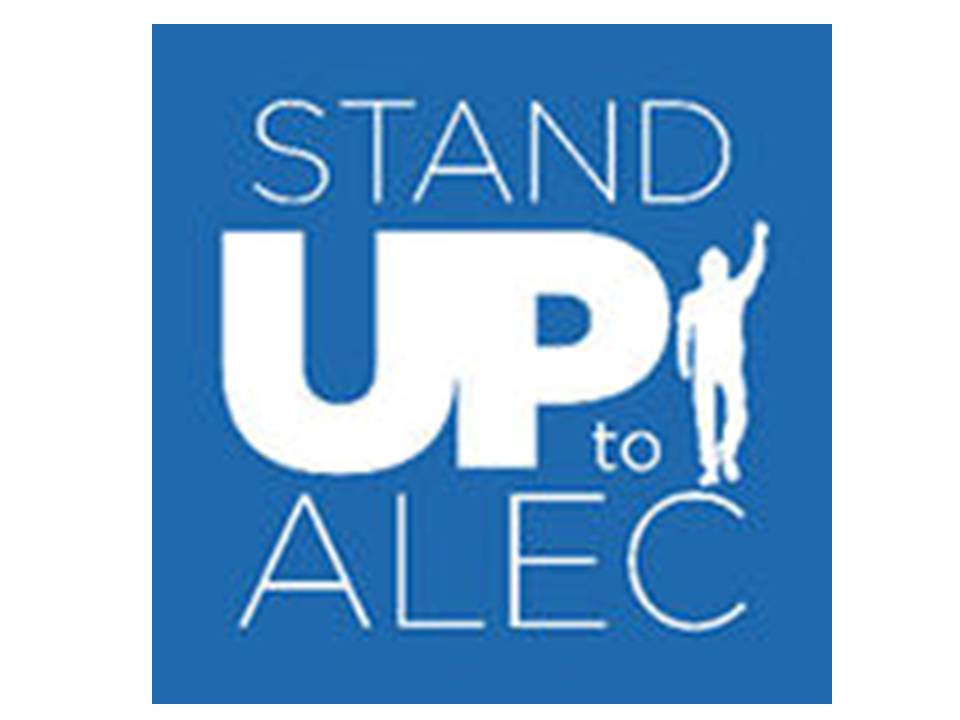
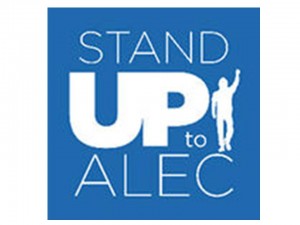
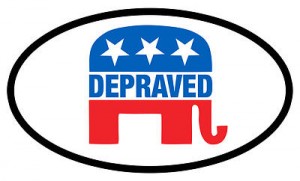
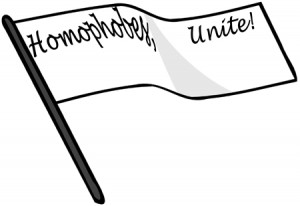
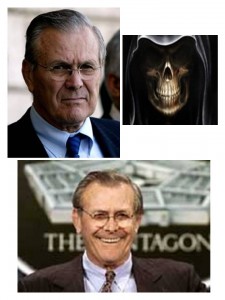
toto
24 Jan 2014While ALEC now say it “does not work on issues related to campaigns or elections” but its Resolution from September 2007 Opposing National Popular Vote Legislation remains posted for all of its supporters to heed at http://www.alec.org/docs/Electoral_College_PR.pdf
In Gallup polls since 1944, only about 20% of the public has supported the current system of awarding all of a state’s electoral votes to the presidential candidate who receives the most votes in each separate state (with about 70% opposed and about 10% undecided).
Support for a national popular vote is strong among Republicans, Democrats, and Independent voters, as well as every demographic group in virtually every state surveyed in recent polls.
Americans believe that the candidate who receives the most votes should win.
The National Popular Vote bill would guarantee the Presidency to the candidate who receives the most popular votes in all 50 states (and DC).
Every vote, everywhere, would be politically relevant and equal in presidential elections. No more distorting and divisive red and blue state maps pre-determining the outcome. There would no longer be a handful of ‘battleground’ states where voters and policies are more important than those of the voters in 80% of the states that now are just ‘spectators’ and ignored after the conventions.
When the bill is enacted by states with a majority of the electoral votes– enough electoral votes to elect a President (270 of 538), all the electoral votes from the enacting states would be awarded to the presidential candidate who receives the most popular votes in all 50 states and DC.
The presidential election system that we have today was not designed, anticipated, or favored by the Founders but, instead, is the product of decades of evolutionary change precipitated by the emergence of political parties and enactment by 48 states of winner-take-all laws, not mentioned, much less endorsed, in the Constitution.
The bill uses the power given to each state by the Founders in the Constitution to change how they award their electoral votes for President. States can, and frequently have, changed their method of awarding electoral votes over the years. Historically, virtually all of the major changes in the method of electing the President, including ending the requirement that only men who owned substantial property could vote and 48 current state-by-state winner-take-all laws, have come about by state legislative action.
The National Popular Vote bill has passed 32 state legislative chambers in 21 rural, small, medium, and large states with 243 electoral votes. The bill has been enacted by 10 jurisdictions with 136 electoral votes – 50.4% of the 270 necessary to go into effect.
NationalPopularVote
Follow National Popular Vote on Facebook via NationalPopularVoteInc